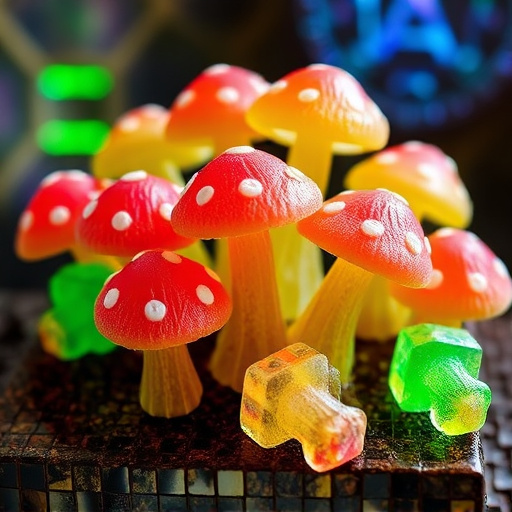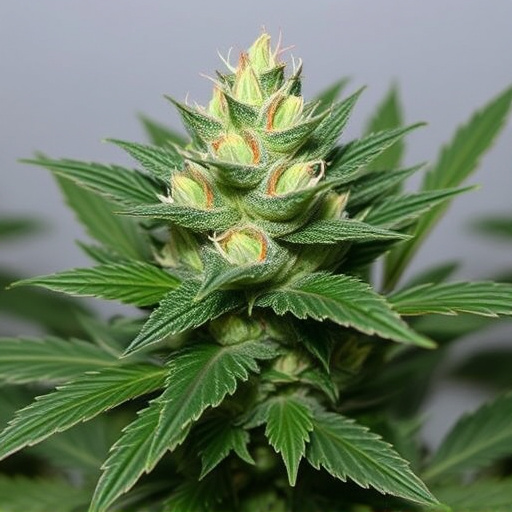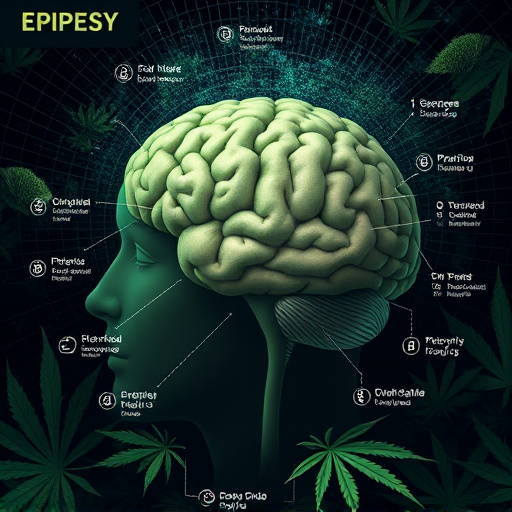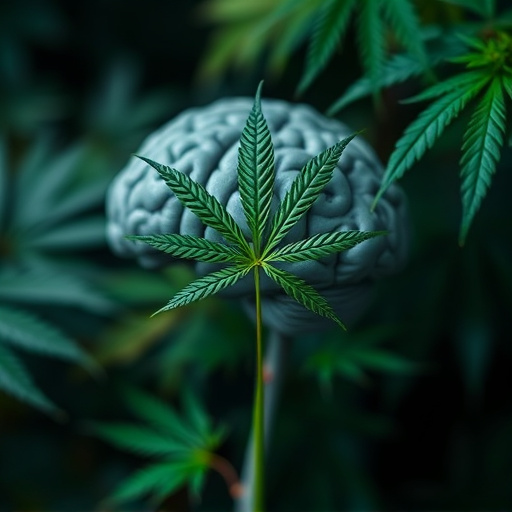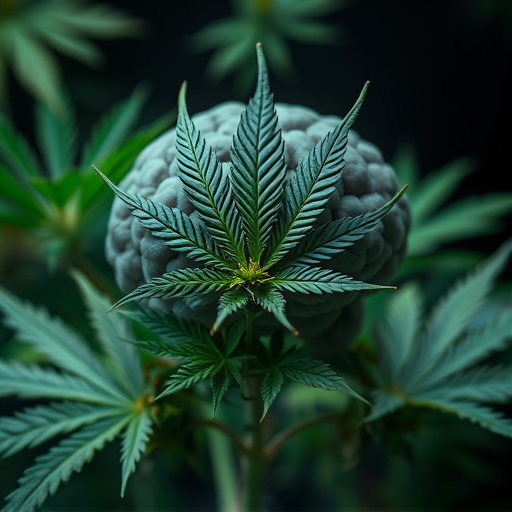Cannabis compounds THC and CBD interact with the brain's endocannabinoid system, affecting dopamine and serotonin levels critical for mood regulation. This interaction offers potential benefits for conditions like epilepsy, where certain cannabis strains have shown promise in managing seizures and anxiety through their modulation of neurotransmitters. Research highlights the complex relationship between cannabis, brain chemistry, and targeted medical applications, emphasizing the need for continued studies to unlock the full potential of cannabis-based therapies, particularly for epilepsy patients.
“Unraveling the complex relationship between cannabis, dopamine, and serotonin is key to understanding its effects on both mood and motor control. This article delves into the intricate world of neurotransmitters, focusing on how cannabis interacts with dopamine and serotonin systems in the brain. We explore the potential therapeutic benefits, particularly for managing epilepsy through specific cannabis strains targeting these neurotransmitter networks. By examining current research, we uncover innovative approaches to utilizing cannabis strains for epilepsy treatment.”
- Understanding Dopamine and Serotonin: The Neurotransmitters Key to Mood and Motor Control
- Cannabis and Its Impact on Brain Chemistry: A Comprehensive Overview
- Cannabis Strains for Epilepsy: Targeting Specific Neurotransmitter Systems for Therapeutic Benefits
Understanding Dopamine and Serotonin: The Neurotransmitters Key to Mood and Motor Control
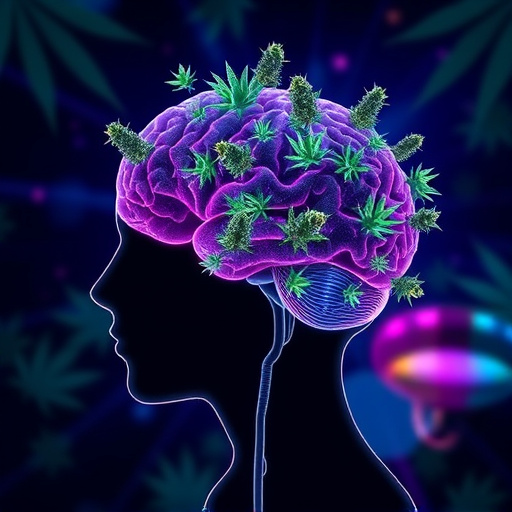
Dopamine and serotonin are two crucial neurotransmitters that play a significant role in our mood, motivation, and motor control. Dopamine is often associated with pleasure, reward, and motivation, helping us to feel good about seeking out rewarding experiences. It’s also vital for movement and coordination, which is why disruptions can lead to issues like Parkinson’s disease. Serotonin, on the other hand, regulates mood, appetite, sleep, and even pain perception. Imbalances in serotonin are linked to conditions such as depression and anxiety.
Cannabis interact with these neurotransmitters, affecting their levels and signaling pathways. While cannabis strains for epilepsy have gained attention due to their potential anti-seizure properties, the plant’s impact on dopamine and serotonin is equally intriguing. Specific compounds in cannabis, like THC and CBD, can bind to receptors associated with these neurotransmitters, leading to a range of effects—from alterations in mood and motivation to potential benefits for conditions involving motor control and sensory perception.
Cannabis and Its Impact on Brain Chemistry: A Comprehensive Overview
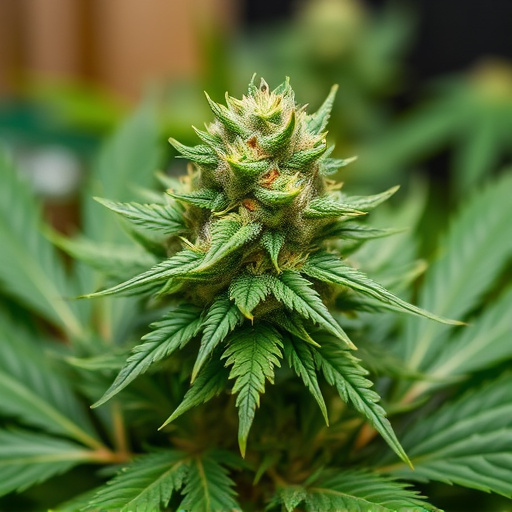
Cannabis, with its complex composition of compounds, notably tetrahydrocannabinol (THC) and cannabidiol (CBD), significantly influences brain chemistry, including dopamine and serotonin levels. These neurotransmitters play pivotal roles in mood, motivation, and reward regulation. When cannabis is consumed, THC interacts with the endocannabinoid system (ECS), binding to receptors that modulate pain, appetite, memory, and emotion. This interaction can lead to increased dopamine release, reinforcing a positive feedback loop that reinforces pleasure and reward feelings.
While THC’s effects on dopamine are well-documented, CBD has garnered attention for its potential therapeutic benefits, including in managing conditions like epilepsy. Some cannabis strains high in CBD have shown promise in reducing seizures by interacting with different neurotransmitter systems beyond the ECS. This highlights the nuanced relationship between cannabis, brain chemistry, and specific medical applications, such as using cannabis strains for epilepsy. The intricate interplay between these compounds underscores the need for further research to unlock the full potential of cannabis-based therapies.
Cannabis Strains for Epilepsy: Targeting Specific Neurotransmitter Systems for Therapeutic Benefits
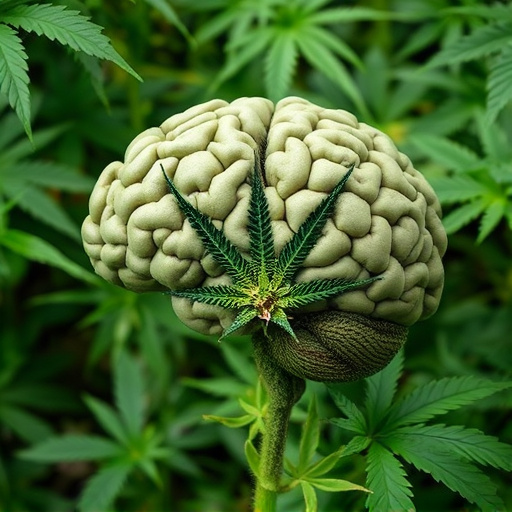
Cannabis has long been studied for its potential therapeutic effects, and one area of interest is its use in managing epilepsy. Epilepsy is a neurological disorder characterized by recurrent seizures, which can be debilitating and impact a person’s quality of life. Certain cannabis strains have shown promise in targeting specific neurotransmitter systems to provide relief for epilepsy patients.
Research suggests that cannabis compounds, particularly cannabidiol (CBD), interact with the endocannabinoid system in the brain, which plays a significant role in regulating mood, memory, and seizure activity. CBD has been found to modulate dopamine and serotonin levels, neurotransmitters closely linked to seizure control and emotional well-being. By influencing these systems, cannabis strains for epilepsy may help reduce the frequency and severity of seizures while offering potential anxiolytic (anxiety-reducing) effects, improving overall patient outcomes.
In conclusion, cannabis’s complex interaction with neurotransmitters like dopamine and serotonin offers promising therapeutic avenues, particularly for managing conditions such as epilepsy. As research continues to unravel these interactions, specifically exploring cannabis strains for epilepsy, we gain valuable insights into harnessing the power of nature to enhance brain health and well-being. Understanding the delicate balance of these neurotransmitters and their modulation by cannabis compounds paves the way for innovative treatments that could revolutionize care for various neurological disorders.

